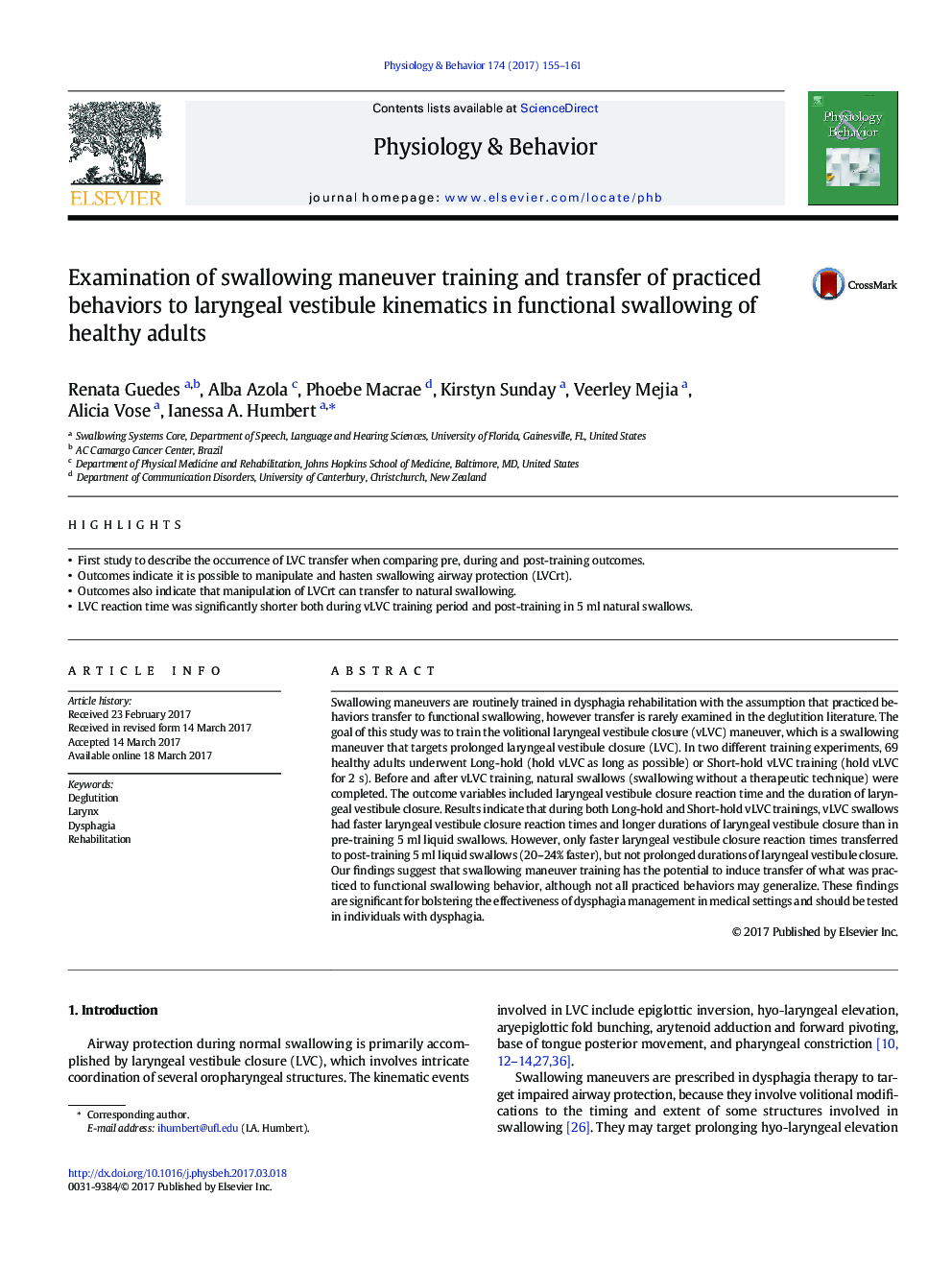| Article ID | Journal | Published Year | Pages | File Type |
|---|---|---|---|---|
| 5593709 | Physiology & Behavior | 2017 | 7 Pages |
Abstract
Swallowing maneuvers are routinely trained in dysphagia rehabilitation with the assumption that practiced behaviors transfer to functional swallowing, however transfer is rarely examined in the deglutition literature. The goal of this study was to train the volitional laryngeal vestibule closure (vLVC) maneuver, which is a swallowing maneuver that targets prolonged laryngeal vestibule closure (LVC). In two different training experiments, 69 healthy adults underwent Long-hold (hold vLVC as long as possible) or Short-hold vLVC training (hold vLVC for 2Â s). Before and after vLVC training, natural swallows (swallowing without a therapeutic technique) were completed. The outcome variables included laryngeal vestibule closure reaction time and the duration of laryngeal vestibule closure. Results indicate that during both Long-hold and Short-hold vLVC trainings, vLVC swallows had faster laryngeal vestibule closure reaction times and longer durations of laryngeal vestibule closure than in pre-training 5Â ml liquid swallows. However, only faster laryngeal vestibule closure reaction times transferred to post-training 5Â ml liquid swallows (20-24% faster), but not prolonged durations of laryngeal vestibule closure. Our findings suggest that swallowing maneuver training has the potential to induce transfer of what was practiced to functional swallowing behavior, although not all practiced behaviors may generalize. These findings are significant for bolstering the effectiveness of dysphagia management in medical settings and should be tested in individuals with dysphagia.
Related Topics
Life Sciences
Biochemistry, Genetics and Molecular Biology
Physiology
Authors
Renata Guedes, Alba Azola, Phoebe Macrae, Kirstyn Sunday, Veerley Mejia, Alicia Vose, Ianessa A. Humbert,
